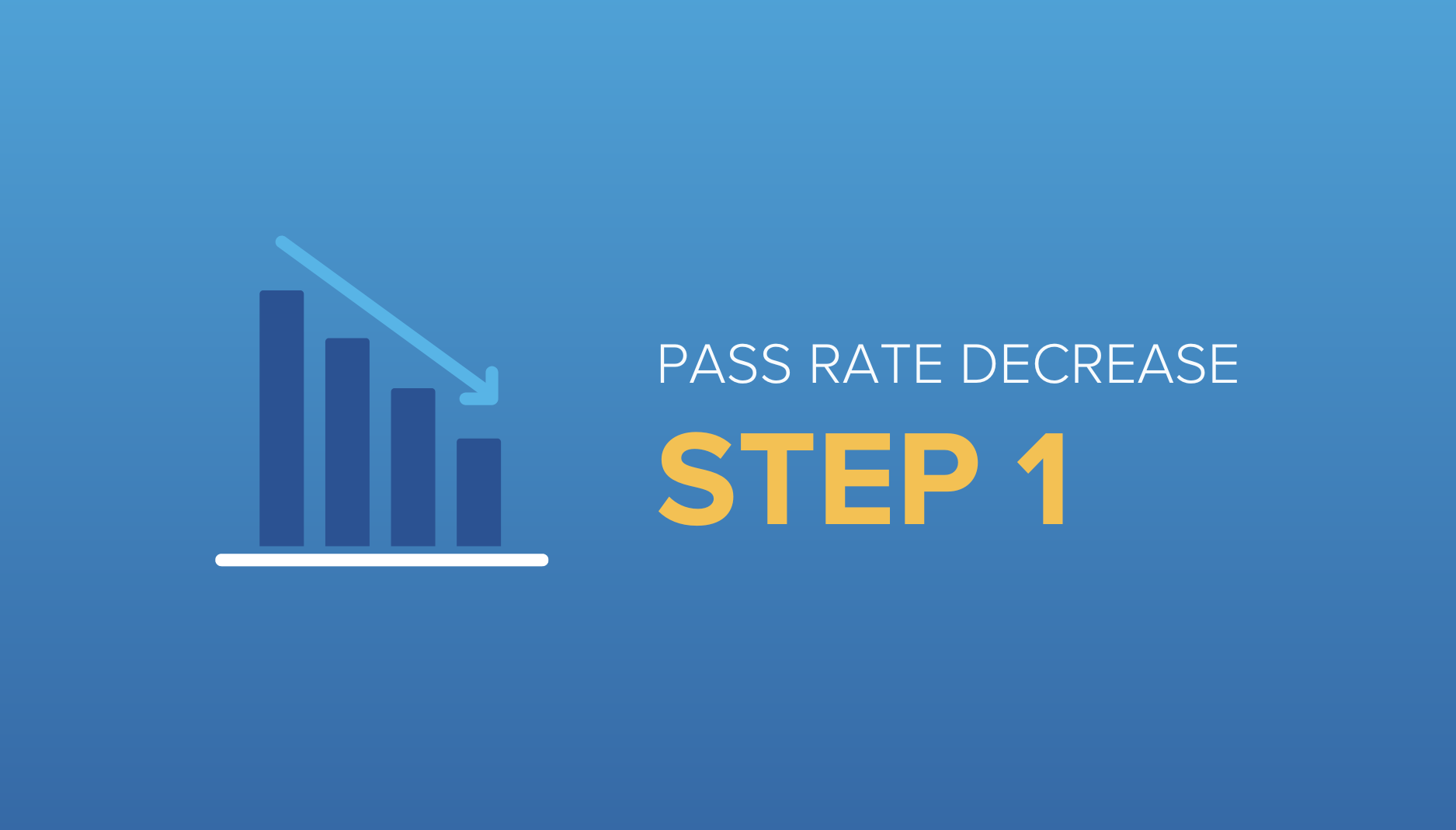We show how to organize a study schedule for your 7-week dedicated study period in preparation for Step 1.
At Blueprint, our stats show that June is the most popular month for our learners to take Step 1. Whether you are just starting to study or entering your dedicated study period, you may be thinking about how to best organize your resources and build a comprehensive study plan to prepare you to ace Step 1.
Thousands of medical students use Blueprint’s Med School Study Planner to save hours of planning time, see exactly what to do each day, and ace their med school exams. Get unlimited FREE access today!
Inspired by the story of one successful previous Cram Fighter user’s schedule (for more, see Surviving the USMLE Step 1 in Just 7 Weeks), we have created a detailed sample schedule that follows his advice. For an excel or pdf version of this schedule, as well as 8-Week and 12-Week sample schedules, click here.
This 7-week study schedule makes use of the following strategies.
1. Create three study blocks of descending lengths.
Your first block will be 4 weeks. Your second will be 2 weeks. And your last will be 1 week long. Structure each block around passes through First Aid. In each study block, you will work on daily UWorld questions to supplement and review. You will start out by working about 8-10 hours a day for your first study block, going through roughly 25 pages of First Aid each day. You will also supplement First Aid with Pathoma lectures, watched at a higher speed than usual.
Your second study block will take you through First Aid again, this time at a faster pace. Keep track of which subjects give you trouble, correlate this with your score analysis of your CBSSA (more on this to follow).. You will revisit these subjects when you strategically review key parts of First Aid in your last study block.
2. Take three practice exams.
Take a CBSSA before you begin your 4-week study block. Analyze the score report and review your results to decide which subject to spend the most time on, usually your weakest subject. Remember to correlate this with the Step 1 content. Spend time appropriately on high yield subjects such as respiratory and cardiovascular which take up large portions of the exam questions, particularly if those are also your weaker subjects. Take another practice exam halfway through your first study block, and another right before you begin your 2-week study block. This time, use a UWorld self-assessment.
3. Set aside one full week for review.
Again, use the information from your self-assessments and from doing UWorld questions to choose your weak subjects. Review these daily during your last week before Step 1. Increase the number of daily UWorld questions, but leave yourself time to test your recall of material from First Aid that may need reinforcement before Step 1.
It’s a tight schedule, but it’s not impossible to prepare yourself for Step 1 in 7 weeks. Use catch-up days and Cram Fighter’s rebalance feature to stay on track. In 7 weeks, you’ll have enough tasks under your belt to walk into that exam center and crush Step 1. Good luck!
Some general advice when crafting your study schedule:
Remember that everyone has different study habits and there is not a single, “correct” approach to preparing for USMLE Step 1. Consider various sample strategies and study schedules online to find one that works for you. Ask upperclassmen, mentors and your educational advisors for advice. Do not be overwhelmed by the amount of information or resources that exist for Step 1. The exam has been around for decades and so there has been a ton of information on it.
Make sure you are free from distractions during your 7 week schedule. Find ahead of time a good, quiet environment that is conducive to studying. Your school likely has a dedicated study area, but if you want a change of scenery, local coffee shops, libraries, or parks are also inviting.
Set yourself up for success by having the right technology for the job. Equip in your arsenal apps to help you achieve focus by silencing distracting notifications or messages, and have your questions banks and study resources prepped ahead of time.
Make sure you plan time for breaks to see friends, eat and exercise, and for rest. Even the most rigorous study schedule should include study breaks. I’d recommend at least one day off a week on average. And be sure to build in short study breaks to help your mind refocus.
Your schedule can be super detailed, or less so. I’ve seen schedules where students have each and every minute planned out, from when they wake up to when they eat, study and work out. Other schedules that work just fine are those with strong and reasonably defined goals, such as Monday: I will finish 3x40Q UWorld blocks, review them and make flashcards of the ones I missed. My advice is to spend more time studying than drafting your study schedule.
Lastly, remember that if you are not ready (consistently scoring below 50% on the self assessments), you can push back the test date. Don’t take this lightly, but pushing the test date until later is better than failing the first attempt.






